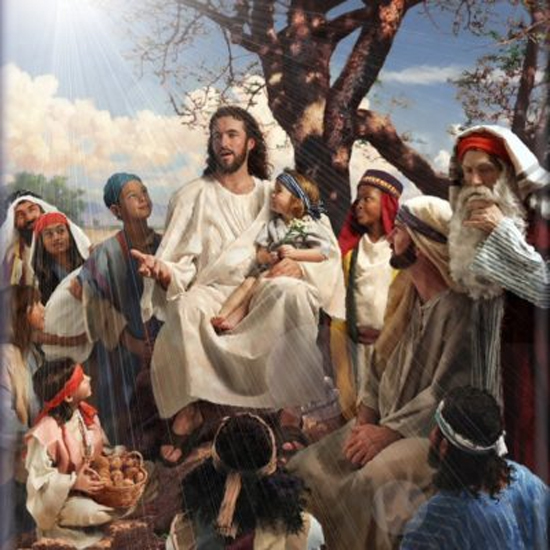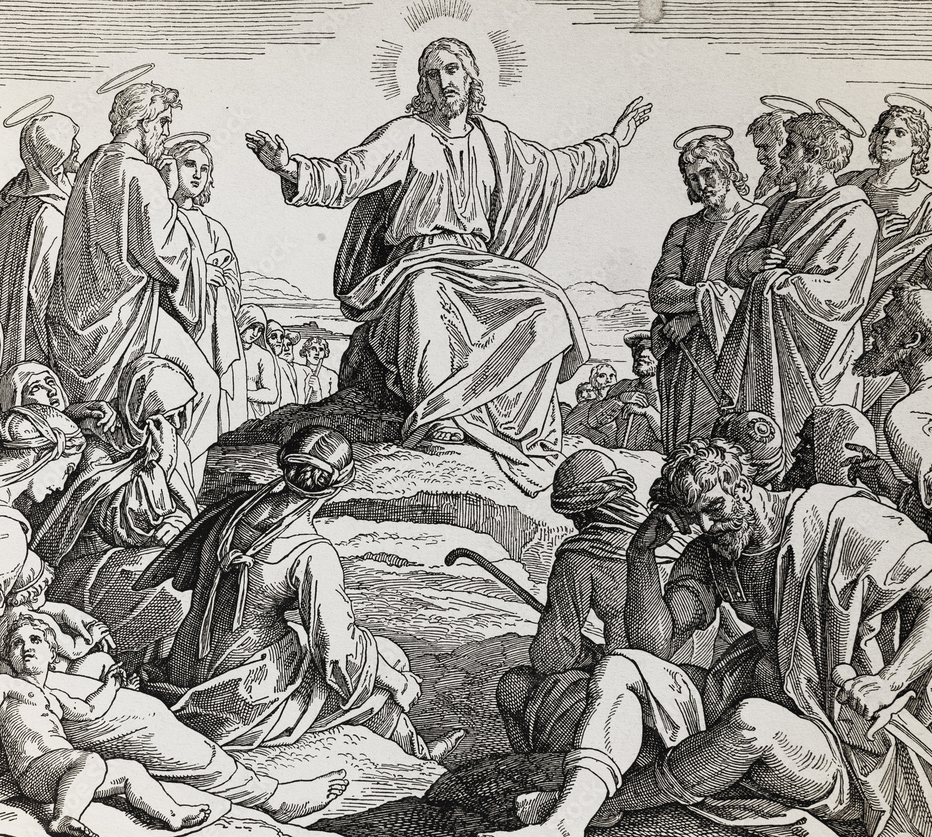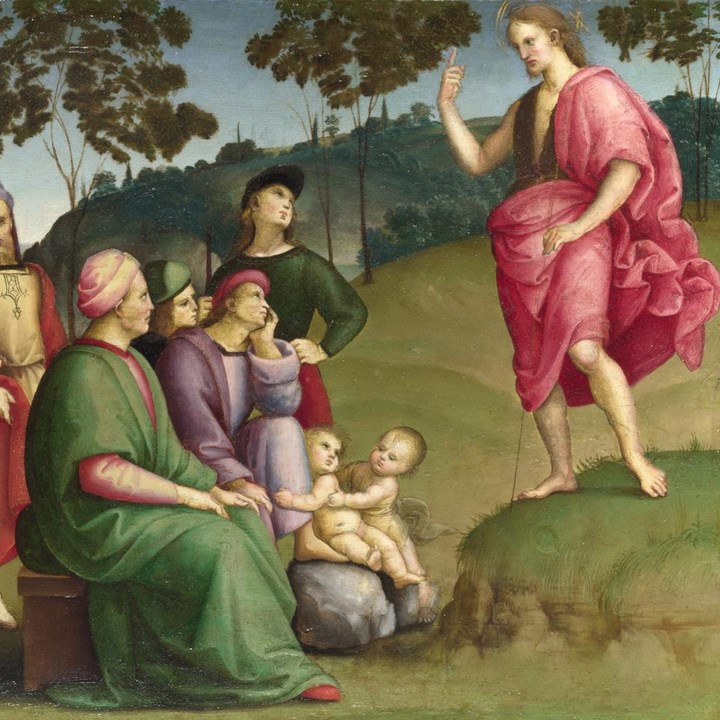Christian Art | Jesus And A Child
Mark 9: 30-37 – 25th Sunday Year B and Tuesday 7 (Audio Bible, Spoken Word)
30 ¶ And they departed thence, and passed through Galilee; and he would not that any man should know it.
31 For he taught his disciples, and said unto them, The Son of man is delivered into the hands of men, and they shall kill him; and after that he is killed, he shall rise the third day.
32 But they understood not that saying, and were afraid to ask him.
33 ¶ And he came to Capernaum: and being in the house he asked them, What was it that ye disputed among yourselves by the way?
34 But they held their peace: for by the way they had disputed among themselves, who should be the greatest.
35 And he sat down, and called the twelve, and saith unto them, If any man desire to be first, the same shall be last of all, and servant of all.
36 And he took a child, and set him in the midst of them: and when he had taken him in his arms, he said unto them,
37 Whosoever shall receive one of such children in my name, receiveth me: and whosoever shall receive me, receiveth not me, but him that sent me.
Jesus has a different way of teaching his disciples from that with which he speaks to the many. As he forms them for their apostolic work, so much of what they learn will come from being close to Jesus, living with him, sharing a way of life. We may think of a whole culture, a whole way of thinking and doing and being, being transmitted through a lived and community relationship, rather than, say, of the sort of education which divides the world up into classes and has a textbook and a teacher for each. Christ is no mere teacher in this sense: he is the Master; he is the Way.
There is a further significance to the secrecy that so often seems to surround Jesus and his disciples, and this at Jesus’ behest. This relates to what Jesus says now, as he announces for the second time his Passion. It is not only inevitable, it is necessary that Jesus be misunderstood. This is what has to happen. Just as Jerusalem rejected and punished the prophets before him, so Jesus himself must die. And then the disciples must be ready to take forward the Way.
For all this, the disciples have much to learn. They are arguing as they go to Capernaum about who will be the greatest, the most important, among them, about who will be in charge. Jesus must teach them that they have not been called to lord it over others, or each other, but to serve, to lower themselves to an attitude of selfless service to all. Jesus will lower himself utterly to save mankind. As he hangs on the cross he will present the most abject figure. He will have given himself away in the service of others, and this will be his triumph.
Jesus calls the child to come to him to try to make this clear to the disciples. This is humility, to serve those who are of no worldly consequence, to see and receive Christ in a little child – or in the poor, in the needy, in the sick – and so to receive the Father. This is love and tenderness, to know that we are in the presence of God, called to his arms as children, and to know that this way of being in relationship is infinitely precious, infinitely good.
Father, you summed up the whole Law as love of you and of our neighbour. Grant that by keeping this commandment of love, we may come to eternal life. We make our prayer through our Lord Jesus Christ, your son, who lives and reigns with you and the Holy Spirit, God, for ever and ever. Amen.

![]()
Audio Bible KJV | Endnotes
What is the symbolism of children in the Bible?
In Mark 9:33-37, Jesus uses the child as an object lesson to teach his disciples about true greatness. He tells them: ‘If any man desire to be first, the same shall be last of all, and servant of all.’ (Mark 9:35, KJV) By using the child as an example, Jesus is emphasizing the importance of humility and service, and the need to care for the most vulnerable members of society.
Elsewhere in the Gospels, the child is associated with themes of faith and trust in God. In Matthew 18:2-4, for example, Jesus says: ‘Verily I say unto you, Except ye be converted, and become as little children, ye shall not enter into the kingdom of heaven.’ (KJV) Here, Jesus is emphasizing the importance of childlike faith and trust in God, highlighting the need for his disciples to approach God with simplicity and humility.
Additionally, the child holds significant symbolic meaning in Christian theology, representing themes of new life and rebirth. In John 3:3, for example, Jesus tells Nicodemus: ‘Except a man be born again, he cannot see the kingdom of God.’ (KJV) This concept of being ‘born again’ is often associated with the idea of a new birth or a new creation, with the child serving as a powerful symbol of this transformation.







